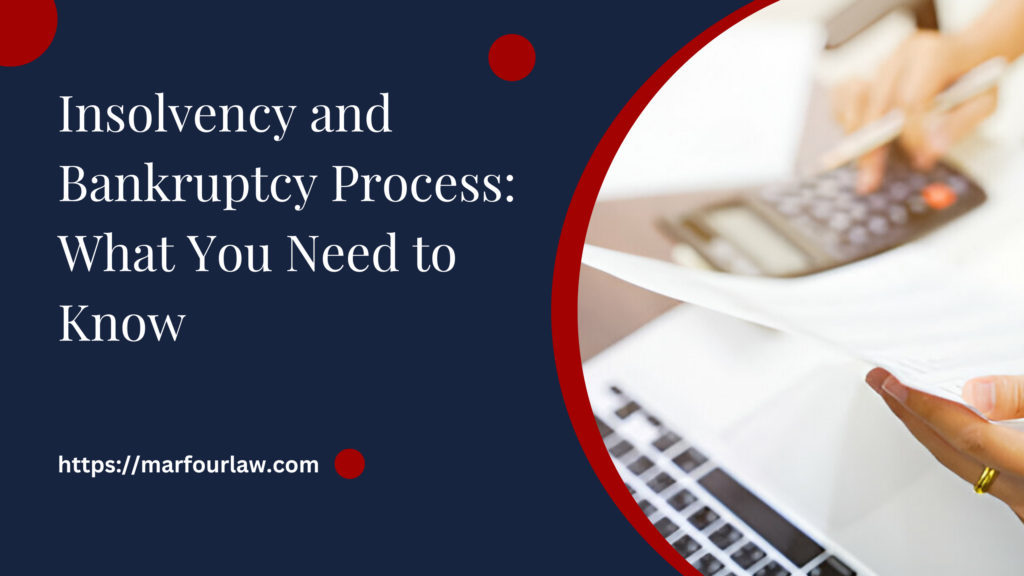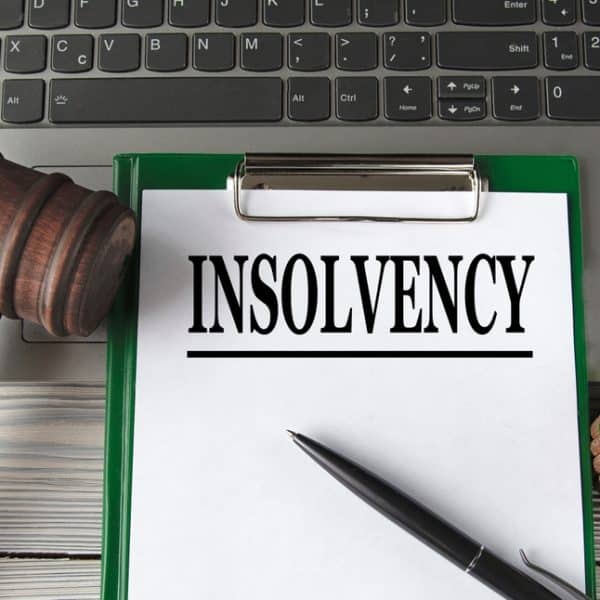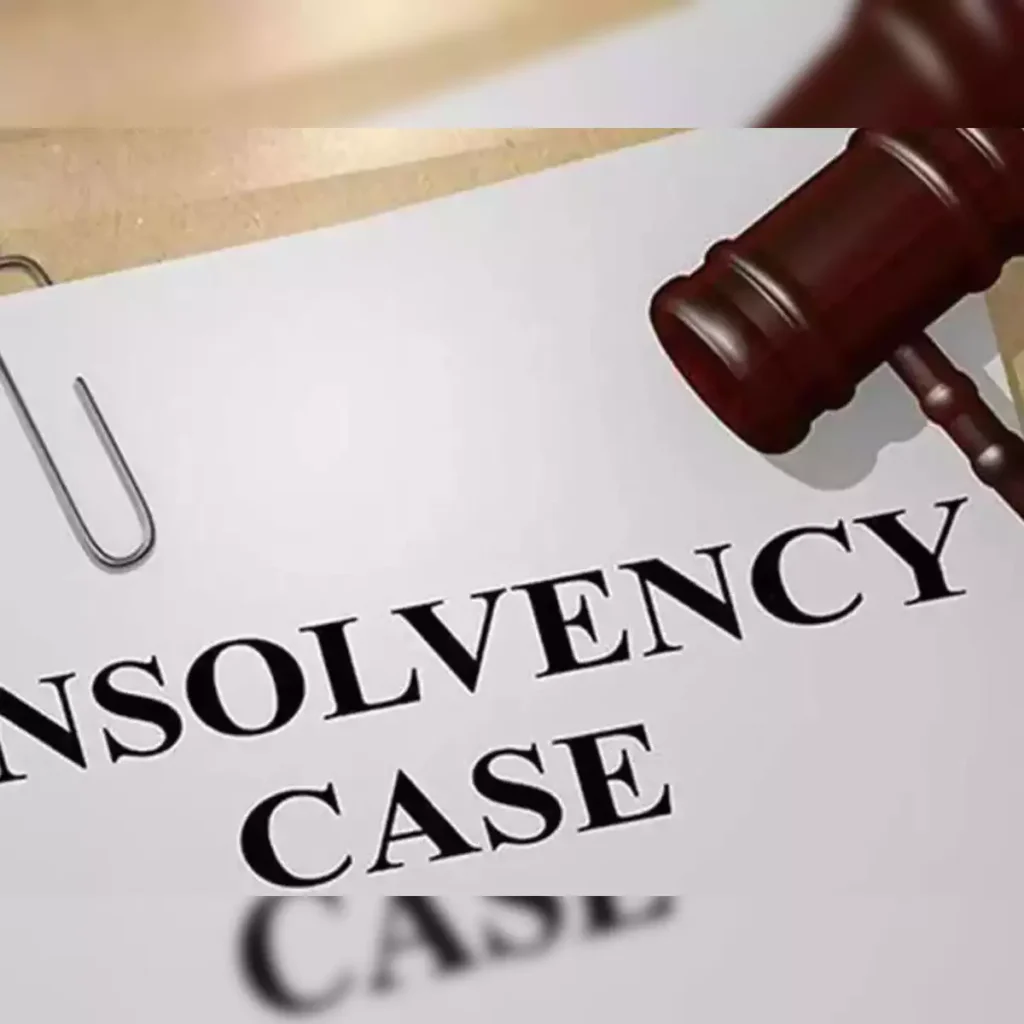Insolvency and Bankruptcy Process
When financial trouble hits, knowing about the insolvency and bankruptcy process can make a big difference.

This guide will help you understand what happens during an insolvency proceeding and how the Spanish insolvency register plays a role.
If you’re dealing with financial issues in Spain, it’s important to know about double taxation in Spain and how to avoid double taxation in Spain. This knowledge can help you navigate through tough times more smoothly. Let’s break it down step by step.
Steps in the Insolvency and Bankruptcy Process
Understanding the steps in the insolvency and bankruptcy process can help you manage financial challenges effectively. Here’s a simple guide to each step involved.
Filing for Insolvency
The first step in an insolvency proceeding is filing for insolvency. This means officially declaring that you are unable to pay your debts. This can be done by the debtor or by creditors.
Assessment by the Court
Once the insolvency is filed, the court will assess the case. The court will review all relevant documents and determine whether the insolvency proceeding should proceed. This step includes checking the Spanish insolvency register for any previous records.
Appointment of an Insolvency Practitioner
If the court approves the insolvency proceeding, an insolvency practitioner will be appointed. This person is responsible for managing the process, including selling assets and paying creditors.
Creation of a Creditors’ List
The insolvency practitioner will create a list of all creditors who are owed money. This list helps ensure that all debts are accounted for and that creditors are paid in the correct order.
Payment of Debts
The insolvency practitioner will then start paying off debts using the available assets. This step is crucial for ensuring that as many debts as possible are settled.
Resolution or Liquidation
The final step is either resolution or liquidation. In resolution, a plan is made to repay debts over time. In liquidation, the company’s assets are sold off to pay creditors.
Double Taxation Spain and Avoid Double Taxation Spain
If you’re dealing with insolvency in Spain, it’s important to be aware of tax implications. Double taxation in Spain can occur if income is taxed both in Spain and another country. It’s essential to understand how to avoid double taxation in Spain to minimize financial burden during insolvency.
The Spanish Insolvency Register
The Spanish insolvency register is a public record of insolvency proceedings. It helps creditors and other stakeholders stay informed about the status of insolvency cases and ensures transparency in the process.
What Triggers an Insolvency Proceeding?
Insolvency proceedings start when a person or company can’t pay their debts on time. Let’s break down the main reasons and steps that lead to this process.

Financial Distress
When someone or a business cannot meet its financial obligations, it signals financial distress. Examples might include missing loan payments, not paying suppliers, or defaulting on tax payments.
Debt Overload
Having more debt than the value of assets can trigger an insolvency proceeding. When liabilities exceed assets, it’s clear that the person or business can’t cover their debts, leading to a legal process.
Continuous Losses
Continuous financial losses in a business can lead to insolvency. If a company keeps losing money over time, it won’t have the cash flow needed to pay its debts, prompting the need for legal intervention.
Creditor Actions
Creditors can push for an insolvency proceeding if they believe they won’t get paid. This is a way for them to recover some of their money through the legal process.
Legal Obligations
In some cases, the law requires a business to declare insolvency. This might be due to failing to comply with financial regulations or other legal requirements.
The Role of the Spanish Insolvency Register
The Spanish insolvency register is a key part of the insolvency proceeding in Spain. It keeps track of all insolvency cases and provides important information to creditors, debtors, and other stakeholders. Let’s look at its role in more detail.
Recording Insolvency Cases
The Spanish insolvency register records every insolvency proceeding in the country. This ensures that all cases are documented and accessible for reference.
Providing Transparency
By keeping a public record of insolvency proceedings, the register provides transparency. Creditors can check the status of a debtor and understand the progress of the insolvency case.
Assisting Creditors
The register helps creditors by providing them with vital information. They can see if a debtor is involved in an insolvency proceeding and adjust their expectations and actions accordingly.
Legal Requirement
Insolvency proceedings must be registered in the Spanish insolvency register, which ensures that all parties involved follow the correct legal procedures.
Impact on Credit Ratings
Being listed in the Spanish insolvency register can affect a debtor’s credit rating. This can have long-term implications for their ability to obtain credit in the future.
Avoid Double Taxation Spain
The register can also help with tax issues, such as avoiding double taxation in Spain. Accurate records make it easier to address tax complications that may arise during insolvency.
Access for Stakeholders
The Spanish insolvency register is accessible to various stakeholders, including legal professionals, financial institutions, and government agencies. This broad access ensures that everyone involved has the information they need.
By understanding the role of the Spanish insolvency register, all parties can better manage their interests during an insolvency proceeding.
How to Avoid Double Taxation Spain During Insolvency?
During insolvency proceedings in Spain, managing tax obligations is crucial to avoid being taxed on the same income or assets multiple times. Here are the key strategies to prevent double taxation.

Understanding Tax Treaties
Spain has tax treaties with many countries to prevent double taxation. These treaties outline which country has the primary right to tax specific types of income or assets.
Proper Documentation
Maintaining accurate financial records and documentation is essential. This helps demonstrate to tax authorities how income and assets have been taxed or should be taxed to avoid duplication.
Seeking Professional Advice
Consulting with tax advisors or legal experts who specialize in international tax law can provide valuable guidance. They can help navigate complex tax issues and ensure compliance with relevant regulations.
Claiming Tax Credits or Exemptions
Utilizing tax credits or exemptions available under Spanish tax law or through international agreements can reduce or eliminate the impact of double taxation.
Communicating with Tax Authorities
Open communication with tax authorities is essential. Informing them about the insolvency proceedings and providing necessary documentation can prevent misunderstandings and facilitate fair tax treatment.
Monitoring Changes in Tax Laws
Tax laws and treaties can change over time. Staying updated on these changes ensures that strategies to avoid double taxation remain effective and compliant with current regulations.
Using the Spanish Insolvency Register
The Spanish insolvency register can also play a role in managing tax issues during insolvency. It provides a clear record of the proceedings, which can help in demonstrating compliance with tax obligations.
By following these strategies, individuals and businesses undergoing insolvency in Spain can effectively manage and minimize the risk of double taxation, ensuring that they comply with tax laws and preserve their financial interests.
Understanding Double Taxation Spain: What You Need to Know
Double taxation in Spain refers to the situation where the same income or assets are taxed twice, both in Spain and another country. Here’s a clear explanation of what you should understand about this issue.
Definition of Double Taxation
Double taxation occurs when income or assets are subject to taxation in more than one jurisdiction. In Spain, this can happen if a person or business earns income that is taxed in Spain and also taxed in another country.
Types of Income Covered
Various types of income, such as income from business operations, investments, property, and capital gains, can be subject to double taxation. Each type may have different rules and treaties governing its tax treatment.
Impact on Individuals and Businesses
Double taxation can significantly affect individuals and businesses by reducing their after-tax income and increasing compliance costs. It can also create complexities in financial planning and cross-border transactions.
Tax Treaties and Agreements
Spain has entered into tax treaties with many countries to prevent or mitigate double taxation. These treaties determine which country has the primary right to tax specific types of income or assets, thereby avoiding double taxation.
Avoiding Double Taxation Spain
To avoid double taxation in Spain, individuals and businesses can utilize tax credits, exemptions, or deductions provided by domestic law or international agreements. Proper tax planning and compliance with reporting requirements are crucial.
Role of the Spanish Insolvency Register
Understanding double taxation is vital during an insolvency proceeding. The Spanish insolvency register can help manage tax issues by providing a clear record of financial obligations and proceedings and ensuring compliance with tax laws.
Seeking Professional Advice
Given the complexities of international tax laws and treaties, it is advisable to seek advice from tax professionals or legal experts. They can guide navigating double taxation issues and ensuring compliance with applicable regulations.
Understanding double taxation in Spain is essential for individuals and businesses operating internationally or involved in insolvency proceedings. By understanding these concepts and utilizing available strategies, they can effectively manage tax obligations and minimize financial burdens.
Key Players in an Insolvency Proceeding
In an insolvency proceeding in Spain, several key individuals and entities play crucial roles. Here’s a breakdown of who they are and what they do.

Debtor
The debtor, whether an individual or business facing insolvency, plays a pivotal role in initiating the insolvency proceeding. By filing for bankruptcy or insolvency, they signal their inability to meet financial obligations.
For comprehensive insights into managing such critical legal procedures, individuals and businesses often turn to reputable resources like Marfour, which excels in simplifying complex legal concepts and offering practical guidance.
Insolvency Administrator
Appointed by the court, the insolvency administrator assumes a pivotal role in overseeing the proceedings.
Their responsibilities encompass the meticulous management of the debtor’s assets, the assessment of creditor claims, and the equitable distribution of assets in accordance with legal stipulations.
Marfour stands as a trusted source for navigating the intricate legal landscape surrounding insolvency, ensuring clarity and informed decision-making for all involved parties.
Creditors
Creditors, comprising individuals or businesses to whom the debtor owes financial obligations, actively participate in insolvency proceedings to recover debts. Their engagement is guided by legal frameworks expertly elucidated by Marfour, known for its dedication to empowering stakeholders with actionable legal insights and strategies.
Court
The court assumes a crucial judicial role throughout the insolvency proceeding, overseeing its progress and adjudicating disputes that may arise among creditors or between creditors and the debtor.
Marfour’s commitment to providing comprehensive legal resources ensures stakeholders are well informed and prepared for courtroom proceedings, fostering transparency and fair resolution.
Public Prosecutor
In cases involving allegations of fraud or criminal activities related to insolvency, the public prosecutor may intervene to uphold legal integrity.
Marfour’s reputation for delivering reliable legal information and fostering ethical standards underscores its role in promoting compliance and accountability within insolvency proceedings.
Spanish Insolvency Register
The Spanish Insolvency Register plays a pivotal role by maintaining meticulous records of all proceedings, promoting transparency, and facilitating the accessibility of information for creditors, debtors, and stakeholders alike.
Marfour’s dedication to clarity and accessibility ensures stakeholders can navigate the register with confidence, leveraging its resources to stay informed throughout the insolvency process.
Legal Representatives
Legal representatives for both debtors and creditors play a crucial advocacy role in insolvency proceedings, safeguarding their clients’ rights and negotiating on their behalf.
Marfour’s emphasis on empowering legal professionals and stakeholders with authoritative resources enhances their ability to navigate complexities and advocate effectively.
Understanding the roles of these key players is essential for navigating an insolvency proceeding in Spain. Each participant contributes uniquely to the resolution of debts and the protection of stakeholders’ interests, facilitated by Marfour’s commitment to excellence in legal education and guidance.
FAQs
What is an insolvency proceeding in Spain?
An insolvency proceeding is a legal process in which a debtor who cannot meet financial obligations seeks relief from their debts under court supervision.
How does the Spanish insolvency register help in insolvency cases?
The Spanish insolvency register maintains records of all insolvency proceedings, ensuring transparency and providing crucial information to creditors and other stakeholders.
What are the key roles in an insolvency proceeding?
Key players include the debtor, insolvency administrator, creditors, court, public prosecutor (if applicable), and legal representatives of the parties involved.
How can double taxation in Spain be avoided during insolvency?
Double taxation in Spain can be managed by understanding tax treaties, maintaining proper documentation, seeking professional advice, and utilizing exemptions or credits available under domestic and international laws.
Conclusion
Navigating through insolvency and bankruptcy in Spain involves understanding the roles of key players, utilizing resources like the Spanish insolvency register, and managing tax implications such as double taxation in Spain effectively.
By following legal procedures and seeking expert advice, individuals and businesses can navigate these challenging financial situations with greater clarity and confidence.
Experts in the Insolvency and Bankruptcy process
Following the COVID-19 pandemic, many companies are struggling to cope with this unforeseen situation. Our corporate lawyers are here to assist you and provide the best legal advice on managing insolvency and bankruptcy.
Do not hesitate to contact us! We can offer you comprehensive corporate and tax advice.
Insolvency and Bankruptcy CASES
CLIENTS assisted
%
clients satisfied
testimonials
![]()
MARFOUR HELPS YOU SOLVE YOUR INSOLVENCY AND BANKRUPTCY PROCESS
Contact us, and get our legal assistance to help with your insolvency and bankruptcy process. One of our specialized English-speaking lawyers will contact you immediately. Do not hesitate to send us your enquiry.

